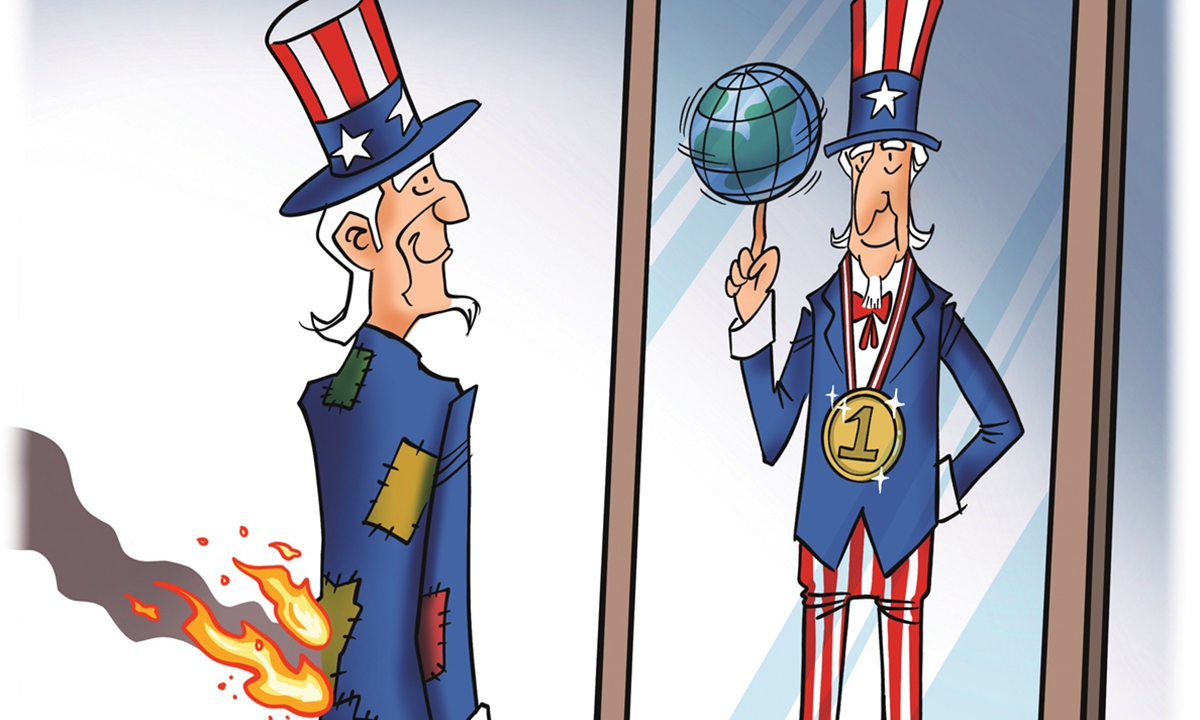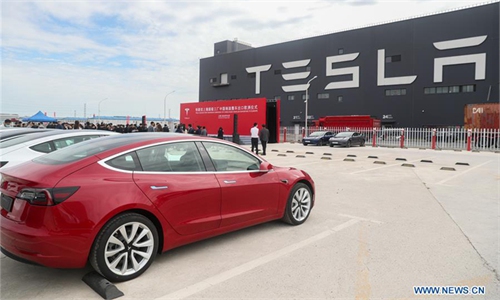
Illustration: Liu Rui/GT
After the end of the Cold War, the world bid farewell to the era of bipolarity. With a fresh wave of globalization and the advent of the internet and information age, the world has been moving toward multipolarization instead of the dominance of one country.Globalization has contributed to a more rational and efficient allocation of world resources, as well as enabling different countries and civilizations to give full play to their resource endowments and advantages and develop rapidly. Even countries that are lacking in natural resources have achieved development by investing in and tapping human resources.
Meanwhile, the arrival of the internet and the information era has not only made technology sharing and diffusion more convenient, but also enabled the successful experience of different countries to be learned quickly, and the threshold for learning has been remarkably reduced.
There are still factors against the trend of the times, however. Over the years, to maintain its hegemony, the US has pursued policies prioritizing its own interests, opposing globalization and free trade, and even taken non-market approaches on the grounds of national security, brutally suppressing the dissemination and application of technologies. But it turns out that it doesn't work.
Since 2016, the US has waged a trade war against many countries in the world in an attempt to reduce its trade deficit and protect its domestic industries. However, apart from increasing the burden on consumers, the US trade deficit has hit a record high, and its domestic industries have not developed further.
The US has launched a technological war against China. It forces European allies to exclude China's Huawei from their 5G networks, and not to sell chip equipment to China, which has heavily hit the US and Europe themselves. As a result, Europe has to pay higher costs, which has slowed down the development of 5G. And the chip industry of Europe and the US also lost China, the world's largest market, and suffered huge losses.
From the perspective of the US, a multipolar world demonstrates the US' relative decline. Yet Washington's problems do not lie in external factors, but internal. Fundamentally speaking, the system design at the initial stage of its founding was based on an agricultural society. Now that the world has already entered the information era beyond the industrial age, this institutional system must undergo major changes.
But today the US has entered a political deadlock where almost no change can be taken. The election of the speaker of the US House of Representatives, which is a routine procedure, took 15 excruciating rounds of voting. There were certainly huge deals and negotiations behind it.
Take the important but long-criticized electoral system. In practice, it has caused two evil results: First, there are many instances of politicians winning despite receiving fewer votes from ordinary voters, leading to questions about the legitimacy of the president and even the system. Second, populist figures can use the system to gain power. Today, the US is unable to adjust even the voting time, not to mention the electoral system.
Moreover, the political landscape is becoming increasingly solidified, the number of voters in the middle has shrunk sharply, and political opposition and extremes have become mainstream. In the 2022 midterm elections, the expected red wave did not appear. Likewise, in 2020, the expected blue wave did not emerge. Each side won narrowly.
The background of the 2020 presidential election is Donald Trump's failure to respond to the COVID-19 epidemic. In 2022, prices were soaring, and people's lives were severely impacted. It stands to reason that health and life are issues that the public attaches great importance to and that should be reflected in elections, but this was not the case.
Obviously, in the current politics of the US, ability, and the morality of politicians are no longer important. What determines everything is the stance. The extreme development is Trump's refusal to recognize the election results in 2020.
In fact, the root cause of the problems in the US is clear. According to an AP-NORC survey published last year, the majority of Americans believe the country is heading in the wrong direction. However, facing the problem, the US prescribes the wrong medicine and goes against the trend of history. As Singapore's former foreign minister George Yeo commented, "The US doesn't like multipolarity and is fighting it. My fear is it will exhaust itself fighting because it will fail."
The author is a research fellow at the China Institute, Fudan University. opinion@globaltimes.com.cn



